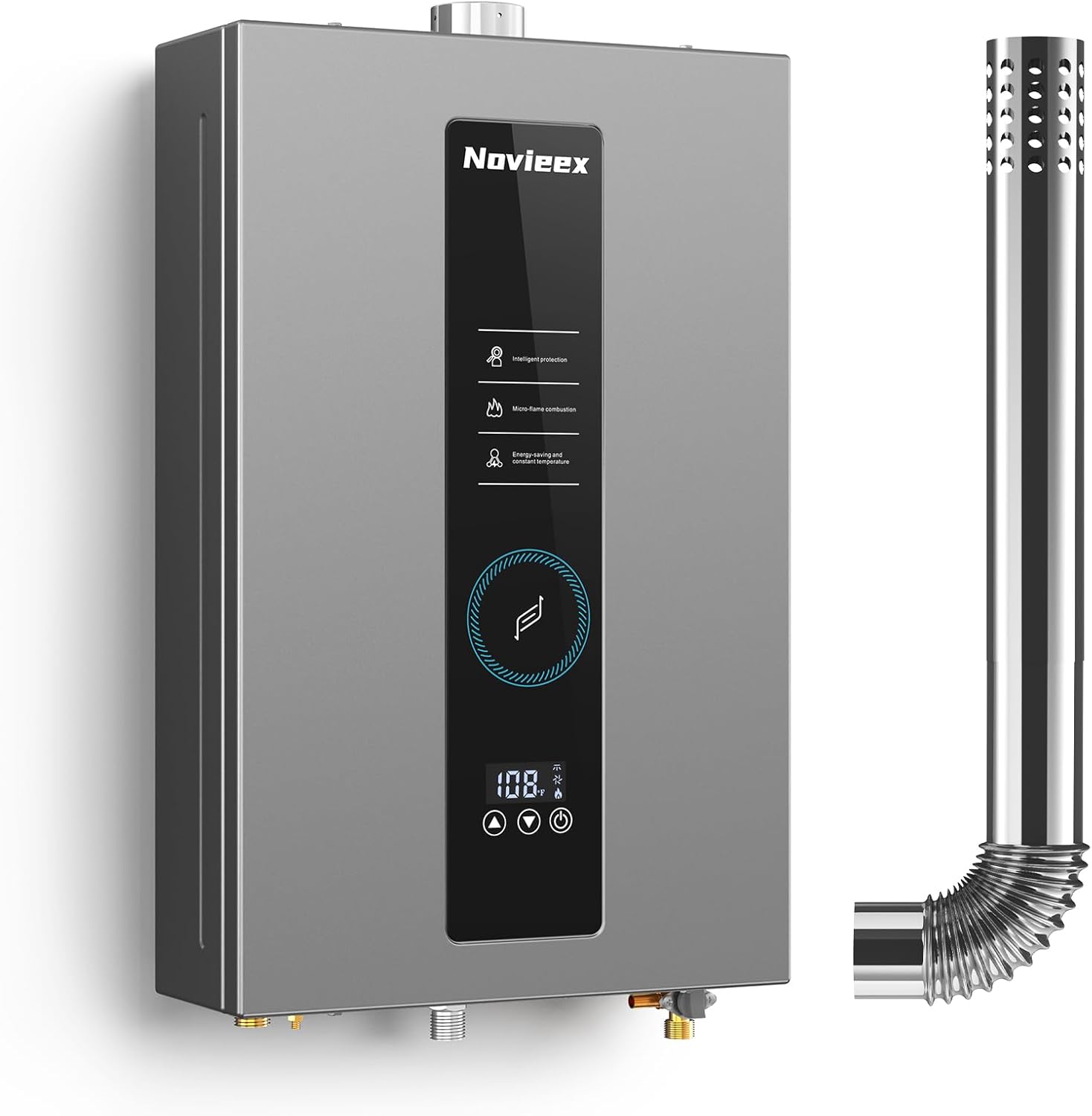The best type of water heater for home use is a tankless water heater, offering energy efficiency and endless hot water on demand.
Tankless or heat pump water heaters are most efficient.
Is your water heater constantly running out of hot water, driving up energy bills, or needing frequent repairs? Choosing the wrong type can lead to inefficiency, high costs, and frustration.
The right water heater can slash energy bills, provide endless hot water, and last longer. In this guide, we’ll cover the top options, cost comparisons, and expert recommendations—including whether a heat pump water heater is right for you.

Key Takeaways
- Tankless heaters save energy but require higher upfront costs.
- Heat pump models cut costs by 50% but need warm climates.
- Storage tanks are affordable but less efficient long-term.
- Solar heaters offer eco-friendly benefits with sun exposure.
Types of Water Heaters Compared
1. Tankless (On-Demand) Water Heaters
Tankless heaters provide hot water instantly without a storage tank, heating water directly as it flows through the unit. They are 24%-34% more efficient than traditional tanks for homes using under 41 gallons daily. However, they require proper sizing—gas models need at least a 199,000 BTU capacity for whole-house use. Installation may also require upgrading gas lines or electrical systems.
2. Heat Pump Water Heaters
These units extract heat from the air or ground, making them 2-3 times more efficient than conventional electric heaters. They work best in warm climates (40°F+) and spaces with at least 1,000 cubic feet of air volume. According to Energy Star, they can save $300+ annually but cost $1,200-$3,500 upfront.
3. Storage Tank Water Heaters
The most common type, these heaters keep 20-80 gallons of water heated at all times. While affordable ($300-$1,500), they lose heat over time (“standby loss”), increasing energy use. Newer models have better insulation, but lifespan averages 8-12 years.
4. Solar Water Heaters
Using rooftop solar collectors, these systems can cover 50%-80% of hot water needs. Federal tax credits may cover 26% of costs, but they require backup systems for cloudy days. Ideal for sunny regions, with installation costs ranging from $2,000-$5,000.
Cost & Efficiency Comparison
| Type | Avg. Cost | Lifespan | Yearly Savings* |
|---|---|---|---|
| Tankless | $800-$3,000 | 20+ years | $100-$200 |
| Heat Pump | $1,200-$3,500 | 10-15 years | $300+ |
| Storage Tank | $300-$1,500 | 8-12 years | N/A |
| Solar | $2,000-$5,000 | 20+ years | $150-$400 |
*Compared to standard electric storage tanks
FAQs
Which is the cheapest water heater to run?
Heat pump heaters are the most cost-effective long-term, cutting energy use by up to 60%. For lower upfront costs, propane or gas models may be cheaper than electric.
Can I install a tankless heater myself?
Gas models require professional installation due to venting and gas line requirements. Electric units may be DIY-friendly—check our Titan water heater guide for tips.
How do I maintain my water heater?
Flush tank models annually to remove sediment. For tankless, descale every 1-2 years (descaling guide here). Heat pumps need filter cleaning every 3 months.
Final Recommendation
For most households, a tankless or heat pump water heater offers the best balance of efficiency and long-term savings. If upfront cost is a concern, a high-efficiency storage tank is a reliable alternative. For expert installation advice, explore our gas vs. electric heater guide.
Need more help? Check the U.S. Department of Energy’s guide or Consumer Reports’ latest ratings.

